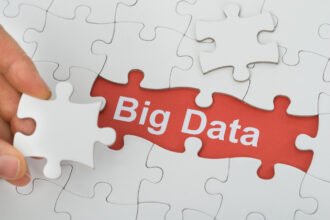Since businesses made the shift to remote work at the start of the pandemic, they’ve faced a lot of unexpected questions and circumstances and solved a lot of problems on the fly. It’s been hard, but overall, they’ve done a remarkable job. There’s one area, however, where businesses have largely floundered: remote monitoring.
Remote monitoring includes a wide range of functions, from offsite data collection to key tracking tools and even video-based monitoring, and though some of these tools are invasive, others can help boost productivity. As they make sense of data-driven, remote work, companies need to balance the risk of invading staff privacy with tracking the information they need to be successful. It’s a fine line, and one that may be too easy to cross.
Privacy Problems
With both everyone from executives to elementary school children joining video chats from home, many people are concerned about privacy incursions. After all, with the exception of those who were working remotely before the pandemic, no one agreed to these conditions, but with rampant unemployment, most can’t refuse to show up to video meetings or to install surveillance software. As the Electronic Frontier Foundation’s cyber security director Eva Galperin explained the situation to Reuters, “It’s increasing hard [for employees] to say no… It can be very coercive.”
Given these new demands, workers are conceding to demands they might otherwise feel empowered to refuse or at least negotiate. Meanwhile, they’re being forced to reveal not just their work habits, but their home lives – at a time when those are unusually chaotic. And, particularly when it comes to video-based surveillance, and even simple video meetings, most of the data businesses are collecting doesn’t actually serve their operations.
Privacy Versus Productivity
When employees describe video-based surveillance as unnecessarily invasive, as well as bad for morale and professional relationships, they’re making a claim about privacy. What many in management don’t realize, though, is that these claims have a bearing on productivity. Over time, a close look at the data reveals this fact – though not the data from video because video produces very little information. Ultimately, it makes sense: people who enjoy their jobs, who feel trusted and valued, are more productive and generate more value for their companies. But what’s the alternative?
One way businesses can generate more data while also emphasizing productivity and community is by deploying a social intranet platform. Social intranet is a powerful tool for facilitating communication, maintaining company culture despite remote conditions, and still collects meaningful data about employee engagement that can help management teams adapt to these new conditions. Are staff opening notifications? How are they using collaborative project spaces? Stats on employee activities are right there, presented in a way that accurately reflects their work activities, rather than their compliance with conventional office norms during far from conventional times.
Thinking Beyond Compliance
Trying to measure productivity via the type of always-on surveillance some businesses have chosen – programs like StaffCop, Time Doctor, and Sneek – misses a number of critical facts about working in the midst of a pandemic. First, and most importantly, it overlooks the fact that, though they are still responsible for their work tasks, they aren’t tied to a nine-to-five with nothing else to manage. Many are homeschooling or caring for children, may have sick family members, or are navigating around spouses who are also at home. They’re stressed and distracted.
The second key problem with surveillance-based productivity data is that it doesn’t measure the right things. What managers should be concerned with is whether the necessary work is getting done. Beyond intermittent synchronous meetings, it’s not important whether staff are at their desks with the right assortment of screens open – which is what surveillance programs measure. That’s a measure of compliance, and compliance is far less important than completion.
When businesses abandon compliance-based monitoring in favor of meaningful communication and productivity metrics, they extend their trust and focus on what they can control: how much work employees have, when it’s due, and how it should be handled. And, it lets go of measurements that employers really have no business monitoring, such as when staff are at their desks, what they look at on their own devices, and where they choose to do their work.
Collecting data on employee activities isn’t new. Businesses have been tracking their employees for years now using various in-house tools. When they did this onsite, in their own offices, though, the situation was very different. We weren’t living through an unprecedented crisis, for one thing. Schools were in session. Our focus wasn’t compromised by a crisis. None of this means businesses should stop measuring employee performance entirely, but rather that everyone deserves some leeway right now. Remember, even six months into this crisis, remote employees aren’t simply working from home. They’re weathering unheard of conditions. As long as the job gets done, the question of how matters a lot less.







